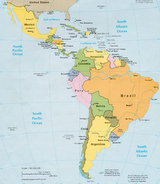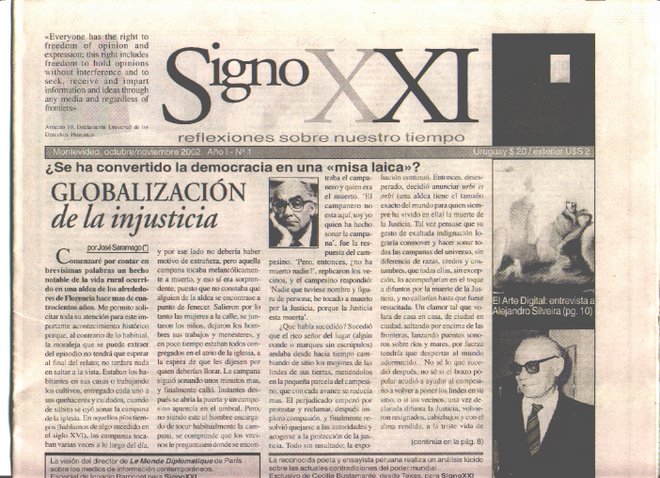lunes, julio 14, 2008
Profesor Stanley Fish sobre literature y moral
Back to front page »
July 13, 2008, 8:32 pm
Happy Birthday, Milton
LONDON, July 11 — I am writing from London where I am attending the Ninth International Milton Symposium which also marks John Milton’s quatercentenary. (He was born December 9, 1608, and died in 1674.) In a sense it’s just a big birthday party for a big birthday, although none of us is likely be honored by a party at which some 200 people from all around the world give papers celebrating our achievements, either during our lifetimes or after we have been dead for centuries.
This is a gathering not of Milton fans (although the attendees are that, too), but of Milton professionals, that is, of people who read Milton for a living. Why do we do it? What sustains our interest over the length of a career?
I have been going around asking, and the answers have come quickly and spontaneously. Nigel Smith of Princeton, whose published work is more historical than literary, set the tone when he told me, “It’s the beauty of the thing; the poetry is just gorgeous; it makes me want to cry.” John Leonard of the University of Western Ontario seconded him: “It’s the way he works with words; what keeps me coming back is the sheer sound of the poetry, ‘simple, sensuous, and passionate.’” (Milton’s own characterization).
But it’s more than that, as both Leonard and Smith agreed. Leonard: “More than anyone else, Milton captures the disjunction between the way things are and the way they should be.” Smith: “It’s the combination of amazing poetry and an insistence on principle.” Rather than being employed for its own sake, the poetry is always in the service of ideas and moral commitments, and it is always demanding that its readers measure themselves against the judgments it repeatedly makes – judgments about the nature of virtue, about the proper mode of civil and domestic behavior, about the true shape of heroism, about the self-parodying bluster of military action, about the criteria of aesthetic excellence, about the uses of leisure, about one’s duties to man and God, about the scope and limitations of reason, about the primacy of faith, about everything.
Milton’s poetry never lets you relax . Even when one of the famous similes wanders down what appears to be a desultory path of mythical allusions and idealized landscapes, it always returns you in the end to the moral perspective that had only apparently been suspended. So after rehearsing the story of Mulciber’s leisurely fall from heaven “like a fallen star,” Milton’s narrator says, “thus they relate, erring,” with the harsh judgment of “erring” now attached to any reader who had been entranced by the “fable” put forth by the devils. (”Paradise Lost, I”, 740-747).
Reading a poetry full of moments like this, moments when a poetic effect cannot be separated from the pressure of ideological choice, is at once exhausting and exhilarating. Rachel Trubowitz of the University of New Hampshire put it this way: “Milton’s poetry is good to think with. It’s a good workout. You feel really great and fit when you’ve finished. Maybe that’s what he meant by the ‘fit reader.’”
This may make the poetry sound unpleasantly medicinal, like an exercise regime you engage in dutifully, but do not enjoy. (Samuel Johnson famously remarked of “Paradise Lost” that no one ever wished it longer.) But in fact it is this quality of the poetry – its issuing of challenge after challenge -– that makes it so teachable to undergraduates. Any number of conference-goers reported the same experience -– students who were in a class only because it fulfilled a requirement or because it was given at a convenient time, students who assumed that they were going to be either bored or made to feel inadequate by an impossibly allusive verse written in an alien, Latinate language. And then, on about the third or fourth week, these same students were fully engaged, arguing with the poetry and with each other about everything under the sun and a few things above it. No matter what the students came in believing or disbelieving, no matter how hard they tried to remain detached, they were drawn in, and once drawn in they were absolutely hooked.
All of this was predicted in 1674 by Samuel Barrow who said to the future readers of the poem, “You who read “Paradise Lost”… what do you read but everything? This book contains all things and the origins of all things, and their destinies and final ends.” How did the world begin? Why were men and women created in the first place? How did evil come into the world? What were the causes of Adam’s and Eve’s Fall? If they could fall, were they not already fallen and isn’t God the cause? If God is the cause, and we are the heirs of the original sin, are we not absolved of the responsibility for the sins we commit? Can there be free will in a world presided over by an omniscient creator? Is the moral deck stacked? Is Satan a hero? A rebel? An apostate? An instrument of a Machiavellian and manipulative deity? Are women weaker and more vulnerable than men? Is Adam right to prefer Eve to God? What would you have done in his place? Wherever you step in the poetry, you will meet with something that asks you to take a stand, and when you do (you can’t help it) you will be enmeshed in the issues that are being dramatized.
Shakespeare is not like that, and his large shadow hung over the conference. Miltonists are like Avis Rent-a-Car; they know they’re second (or their man is) and they try harder. One of the speakers, Andrew McCarthy of Washington State University, referred at the beginning of his talk to “the greatest of English poets,” but then acknowledged the specter of Shakespeare. Nigel Smith’s most recent book is entitled “Is Milton Better Than Shakespeare?” The title is a publisher’s teaser and the answer to the question (as Smith knows) is, No, he’s different. And the difference is that after reading or seeing a Shakespeare play you want to sit down and discuss the glories of Shakespeare, whereas after reading a Milton poem you want to sit down and discuss the ideas and imperatives he has thrust at you. Jonathan Rosen was getting at something like this when he said in a recent New Yorker piece, “No one would ever wonder whether Milton was really the author of his own work.” (The exception is the theological treatise “On Christian Doctrine,” the authorship of which has been a matter of controversy.)
Shakespeare does many voices but identifies with none of them. (His, as Keats said, is a negative capability.) He’s hard to find, as his would-be biographers well know. Milton has many characters, but they all speak with one voice — his. You don’t have look for him; you can’t get away from him. Despite the variety of scenes and genres there’s always just one guy talking to you; the conversation goes on and on and it is a conversation in which, as Barrow first said, everything is at stake. This is a poetry that reads you.
The same conversation is the content of Milton studies, although the requirements for entering it include a mastery of vast bodies of literary, theological, historical, political and economic materials. But even when the conversation is arcane as it was in a paper surveying the practices of publishers who, by listing titles by other clients at the back or front of each book, worked to create a community of like-minded readers (much as Amazon does when it tells you that if you’re interested in this book, here’s five more you’d also like), in the end the most technical and apparently remote discussion winds its way back to the great issues Milton raises. Peter Lindenbaum of Indiana University, the author of that paper, remarked to me that “There’s no point keeping up with Milton criticism because it keeps repeating itself.” But that is the point; the questions posed by the poetry are few, a finite set, but the ways of answering them are infinite, and because they are the ultimate questions, we want always to be returning to them. Sure we’ve heard them before, but we haven’t quite got it right, so we’re eager to give it another try. At the end of one session Tom Luxon of Dartmouth said, “That’s what it’s all about, keeping the conversation going.”
I did my bit by giving a paper on the first day and then I listened to 25 others having their say. I guess I should be sated , but to tell the truth, I want more.
-------------------------------------------------
Ir al Sitio principal Escritos críticos / Ensayos
www.majfud.50megs.com
Reflexiones sobre nuestro tiempo
-------------------------------------------------
Suscribirse a:
Comentarios de la entrada (Atom)




No hay comentarios.:
Publicar un comentario